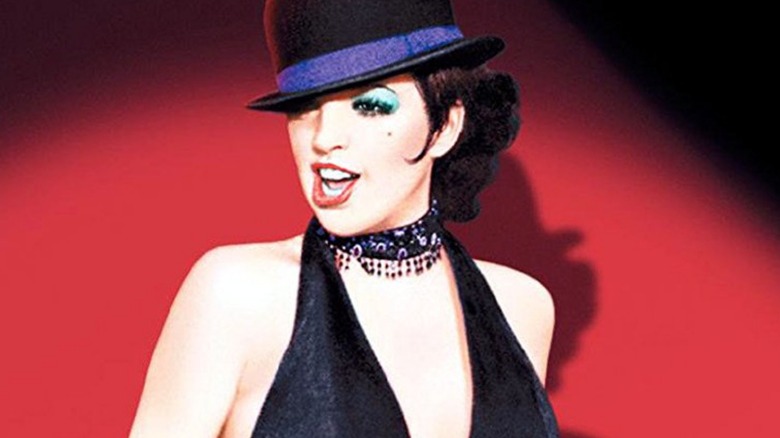
There's something equally inspiring and infuriating about great artists who find success across multiple mediums. We've seen this in 2021 with actor and composer Lin-Manuel Miranda's critically acclaimed directorial debut "tick, tick... Boom!," and we saw it decades earlier with the films of Bob Fosse. Known primarily as a choreographer with a provocative and specific style of dance, Fosse went on to have a career as a film director characterized by a few misses and some really stellar hits. Fosse is so much more than snazzy hats and jazz hands. In fact, not all of his films are even musicals.
Let's go through them all, shall we? Not just the five feature films that Fosse directed, but also those to which he contributed choreography. Fosse signed a contract with MGM in 1953, which kickstarted his Hollywood career, but his influence goes beyond the movies: If you want to know even more about Fosse as an artist, I recommend his Emmy-winning TV special "Liza with a Z " and the professional recording of his musical "Pippin." But to get a good idea of who Fosse was as a filmmaker and visual storyteller, the feature films he worked on are a great place to start. Here's how they rank.
Kiss Me Kate
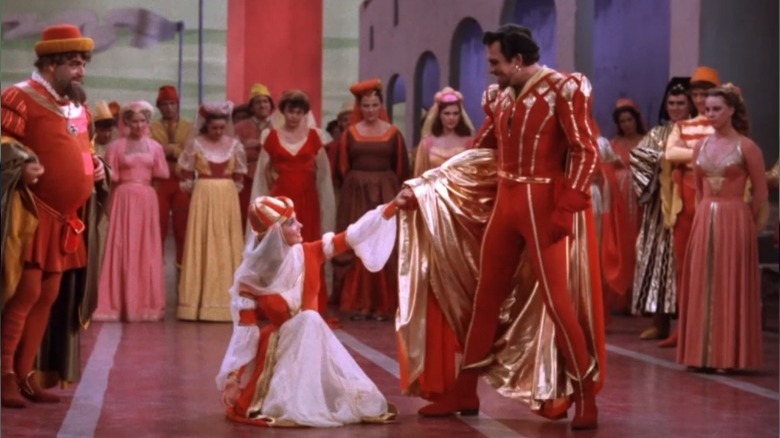
To prepare for this list, I watched a lot of '50s musicals I had never seen that were choreographed by Fosse. I was struck by how, in his earlier work, his choreography was pretty conventional, and comparable to that of other musicals of the time, like "Guys and Dolls" or "Singing in the Rain." Fosse's voice and personal style as a dancer and choreographer bleed through in choice moments. In "Kiss Me Kate," this is partially because Fosse's work on the film went uncredited. You see his style most in the number "From This Moment On," in which Fosse himself appears as a featured dancer. He's also featured in "Tom, Dick, or Harry" — one of the more popular songs from this musical.
Why's this at the bottom of this list? It's simply not a great adaptation of the musical. There's a reason it's not more well-known. Plus, speaking as a musical fan, the choice to make "Too Darn Hot" a sexy audition instead of a joyous group dance is especially unfortunate. It would have been so much cooler if Fosse had gotten to actually choreograph the piece with a full ensemble.
Lenny
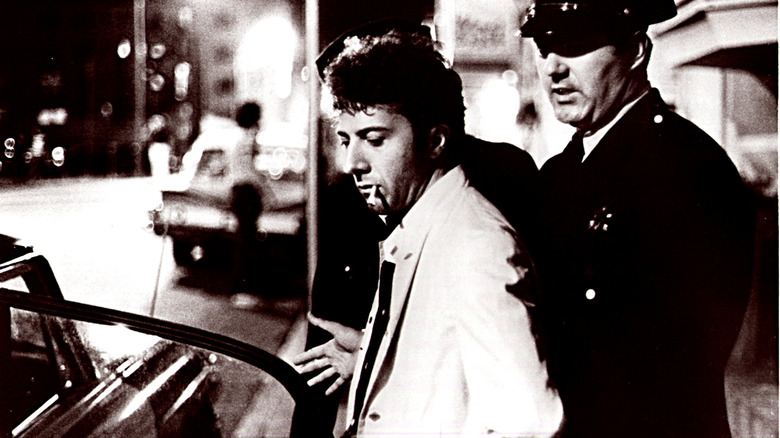
This ranking, much like the film's subject matter, may be a bit controversial. Fosse's third feature film as a director, a biopic about Lenny Bruce starring Dustin Hoffman, is pretty boring to me, despite Hoffman's stellar performance. It was nominated for six Academy Awards, including best picture, best actor, and best director, but I just couldn't get into it. I would rank it high in a list of biopics, however. It's a narrow portrait rather than a grandiose attempt to cover the comedian's entire life story, with creative editing and stunning production design. But, as a Fosse film, there are better entries.
"Lenny" also has a scene in which Bruce repeats many racial slurs to make a point. It's simply not fun to watch. This is something that the real Lenny Bruce did (they won't show you that on "The Marvelous Mrs. Maisel," which also features a fictionalized version of Bruce) so it's worth including in the film, especially when you see Bruce getting arrested for making sexual references and not the hate speech. But that doesn't mean I have to applaud it.
The Pajama Game
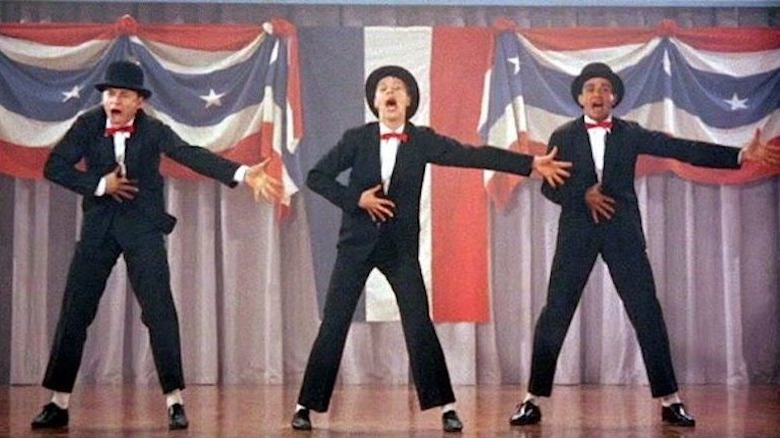
Fosse jumps out in the number "Steam Heat," which is performed in the film alongside his collaborator and paramour Gwen Verdon, who has a cameo role. It's one of the many song and dance numbers that resulted in Fosse getting labeled as a "hat guy" in pop culture. He loves hats, and hat-based choreography! It's not Fosse's only signature, but it's a big one. Other than that, like "Kiss Me Kate," the choreography here is pretty standard (it's worth noting that Fosse choreographed the Broadway production of "The Pajama Game" as well, for which he won a Tony).
That said, this is a musical worth revisiting because of its subject matter. "The Pajama Game" is about the workers at a pajama factory who go on strike to demand a living wage. Even though it's a romantic comedy at heart, the fact that a musical from the '50s tackled labor rights and corruption paved the way for more serious musicals about even more progressive subject matter down the line. That's something that Fosse was drawn to as both a director and a choreographer.
Damn Yankees
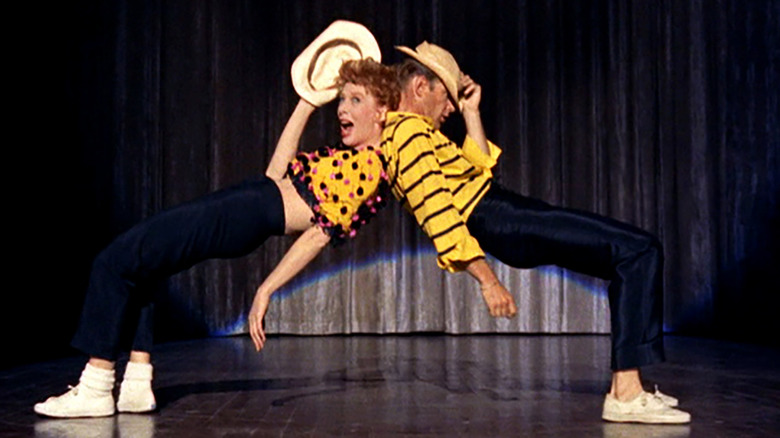
Speaking of '50s musicals with dark subjects, "Damn Yankees" is about a man who sells his soul to the Devil to have the Washington Senators beat the New York Yankees — and so, whaddya know, the Devil appears and turns him into the perfect baseball player. Much like "The Pajama Game," Fosse choreographed "Damn Yankees" on Broadway prior to the production of the film. By the time the show made it to the screen, it was already a phenomenon.
That has a lot to do with Gwen Verdon, who stars as the Devil's indentured assistant Lola, and, oh boy, does her famous "seduction" number "Whatever Lola Wants" show off what makes Fosse so different as a choreographer. It's weird. It's not traditionally sexy at all, but it makes sense for the character. Later, Verdon has a duet with Fosse himself called "Who's Got the Pain" and the chemistry between the two of them is almost unreal.
The Little Prince
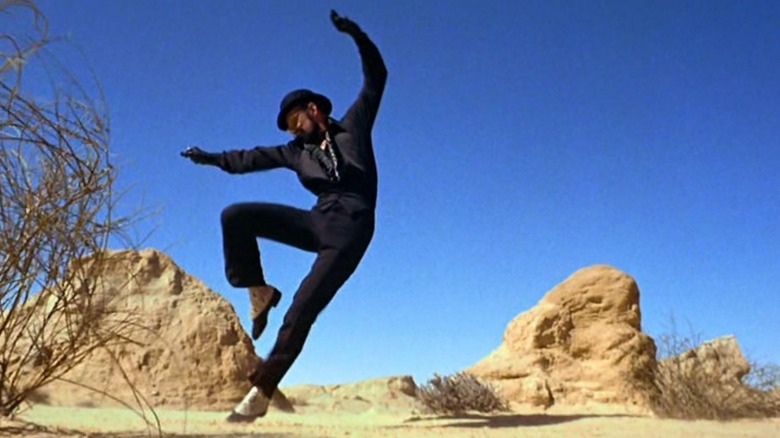
When Fosse appears as a snake in this film, he's almost a parody of himself. He's dressed all in black. He's wearing a hat. A cigarette dangles from his mouth. He's slinking around in a way that has since become synonymous with "Cabaret," "Chicago," and another famous performer. The clip of Fosse in "The Little Prince" often goes viral because of how reminiscent his moves are of Michael Jackson's. In particular, Fosse does the moonwalk years before Jackson made it his trademark maneuver. Neither of them stole it from the other, but it is interesting to note the similarities.
The film itself earns its place on the list not only because of Fosse's choreography, but because it's one of those great children's movies from the '70s that, like "Charlie and the Chocolate Factory" and "The Wiz," may or may not traumatize you with some unexpectedly scary moments.
Star 80
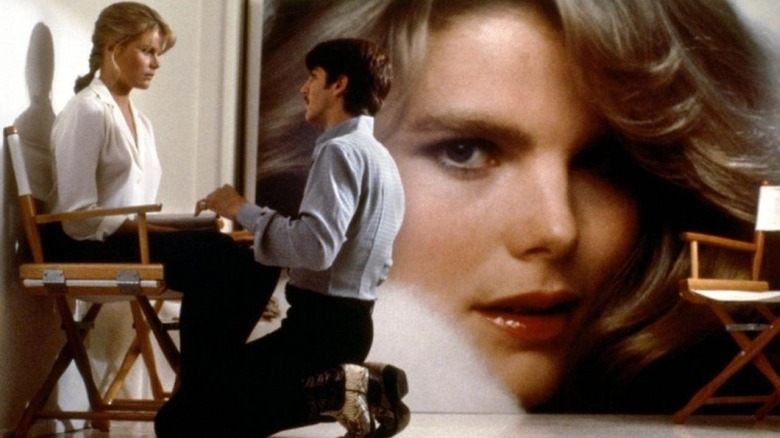
Fosse's last film as a director is generally considered to be his worst and most exploitative, but I found it interesting nonetheless. You can see how "Star 80" may have inspired directors like Jonathan Demme and Mary Herron. It's true crime before true crime became a juggernaut. The film is about Paul Snider, a man who infamously stalked and murdered his wife, Playboy bunny Dorothy Stratten, who was nine years his junior, and subsequently died by suicide. It stars Eric Roberts, brother to Julia, who was infamously snubbed by the Oscars.
It's gritty. It's twisted. It does not hold back. But there's a brief moment when Snider makes a comment about Dorothy's younger sister and the camera lingers on their mother's concerned and knowing face that exemplifies why "Star 80" has value. The film is cynical without glorifying darkness and obsession. Fosse was keenly aware of toxic masculinity and the male gaze in cinema even as he, a temperamental womanizer himself, often embodied it.
Sweet Charity
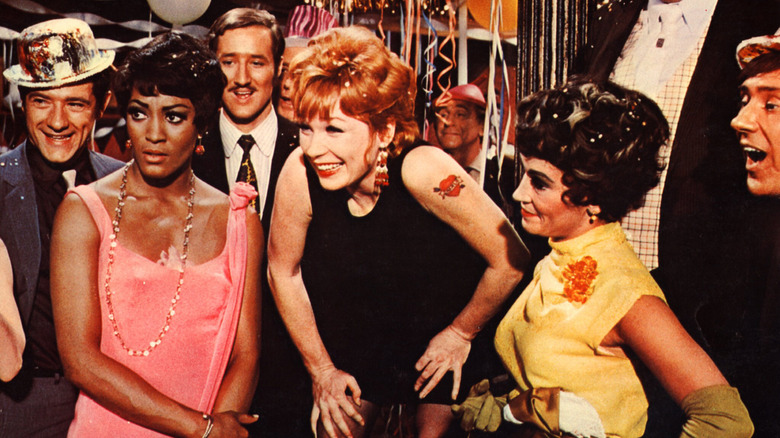
Fosse's directorial debut bombed at the box office and received mixed reviews, but it's pretty dang fun. It follows Charity Hope Valentine (Shirley MacLaine) as she bounces through life as a dancer-for-rent at a sleazy club and tries to make her way up in the world, balancing multiple love interests with the hopes that one of them will sweep her out of the gutter. It's too long. I'll give the critics that. But, if you have the attention span or give yourself an intermission, "Sweet Charity" is a delightful weirdo of a movie musical and an ambitious directorial debut.
Every musical number is its own ecosystem. "Big Spender" plunges you into the world of the Fandango Ballroom. The "Rich Man's Frug," which was rightfully a TikTok dance trend a while back, combines Fosse's hyper-specific isolated movements with go-go dancing to show how out of place Charity is at a fancy bar. "The Rhythm of Life" lets Sammy Davis Jr. show off as the leader of a hippie cult. "There's Gotta Be Something Better Than This" is an "I Want" song in triplicate, with Charity and her two besties dreaming of a better life; Fosse's choreography functions as a slightly more mature take on a Jerome Robbins-esque "West Side Story" number.
My Sister Eileen
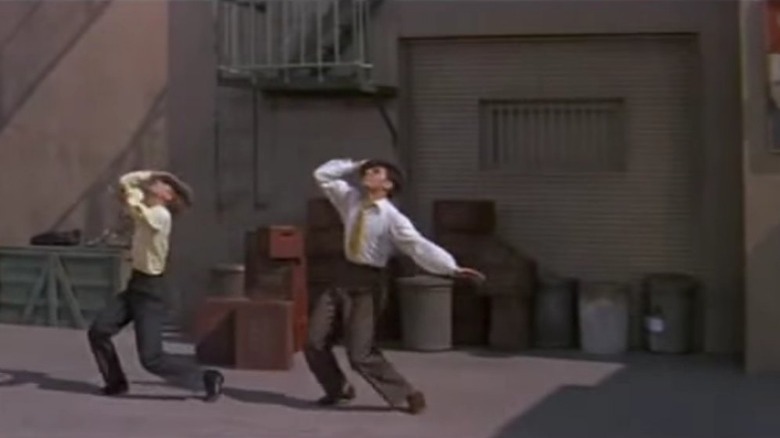
This low-key '50s musical is surprisingly charming. Check it out if you get the chance! Its story has been adapted many times. It started as a series of short stories written by Ruth McKenny and published in The New Yorker. Those were adapted into a play, which became a straight comedy film in 1942, with cameos from the Three Stooges, and then turned into a movie musical. In addition, there's another Broadway musical called "Wonderful Town" that is also based on McKenney's stories about moving from Ohio to Greenwich Village with her more attractive sister, and that has completely different songs. There's a whole Eileen multiverse out there. Who knew?
This 1955 musical is mostly a musical rom-com, but it gets a little goofy. There's a song with some sailors that feels like it could have been plucked right out of "Mary Poppins," for example. But, as is the case with the other movie musicals Bob Fosse worked on before he became Fosse, his talent shines through, and certain songs preview the type of dancing he became known for in the decades to come.
"My Sister Eileen" also shows off Fosse's talent as an actor and performer in addition to his skill as a dancer. He plays a sweet and bumbling guy who works at a soda fountain and falls in love with Janet Leigh's Eileen. The two of them are just too freakin' cute together.
Cabaret
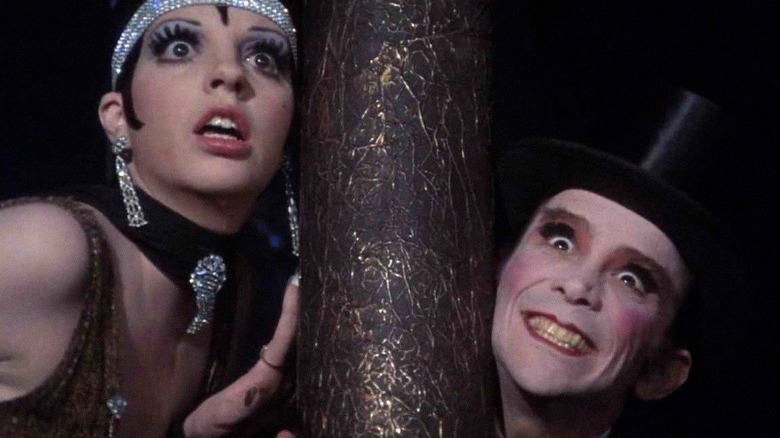
Fosse's greatest success, and the dragon he chased for the rest of his life, is "Cabaret." The film took home eight Academy Awards, including best director, best actress, and best supporting actress (it lost best picture to "The Godfather"; in my humble opinion, if your masterpiece is going to lose best picture, it might as well be to another masterpiece). It's not shot like a typical Hollywood musical, either. It's intimate. The ending is not happy. It's harrowing and bleak.
"Cabaret" proves yet again that musicals can be dark, intelligent, and challenging. The film is about artists in Germany during the Weimar Republic who find a safe haven in the Kit Kat Club as fascism rises around them. The male lead is bisexual; that's rare even now, and this was made almost 50 years ago.
While the film differs significantly from the Broadway show, subsequent productions of the musical were reworked to pay homage to Fosse's choreography and some of the new songs that were added for the movie. Not only is "Cabaret" a stellar adaptation of a stage musical and one of the best movie musicals ever made, it's also the rare film musical that's considered better than its source material.
All That Jazz
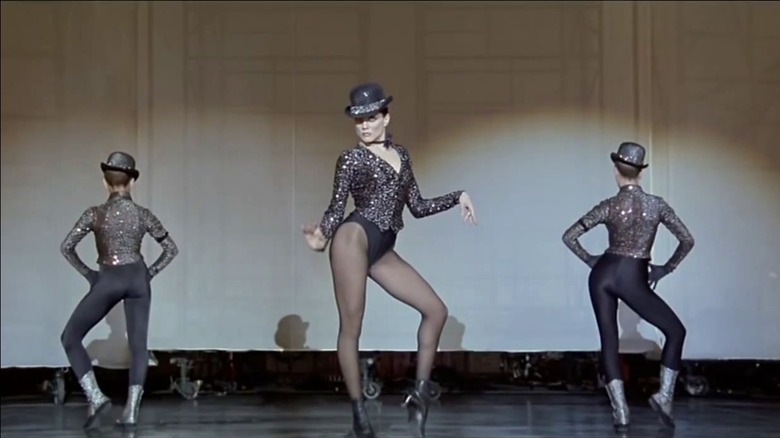
However, Fosse's greatest achievement as a filmmaker and as an artist is the film in which he choreographed his own death. While it was snubbed at the Oscars, only winning technical awards, "All That Jazz" won the Palme d'Or at Cannes and has been immortalized by the National Film Registry and the Criterion Collection. It follows Roy Schneider as Joe Gideon, a director and choreographer not-so-thinly based on Fosse himself, as he reflects on his self-destructive career and vices.
It's no surprise that after writing the lyric "I imagine death so much it feels more like a memory" in "Hamilton," two of Lin-Manuel Miranda's biggest projects were the series "Fosse/Verdon" about the rise and fall of Fosse, who died eight years after making "All That Jazz" (Miranda was a producer on the series), and an adaptation of Jonathan Larson's semi-autobiographical rock monologue "tick, tick...BOOM," which mused on his death five years before it actually happened. The connective thread is apparent even though the lives, deaths, and creations of these men were relatively disparate.
But, even beyond that, "All That Jazz" stands out. The film is daring, inventive, darkly comic, and absolutely fascinating. Fosse is so critical of his own life that he essentially, using today's terminology, cancels himself. Few artistic geniuses can say they did that. Even now, nobody does it like Fosse!
Read this next: The 15 Best Jane Austen Adaptations Ranked
The post Every Bob Fosse Movie Ranked Worst to Best appeared first on /Film.
0 Commentaires